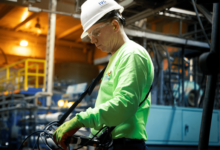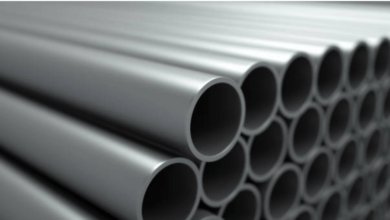Precision Rack and Pinion Manufacturer: Crafting the Backbone of Industrial Motion Systems

Whether it’s in CNC machines, automated assembly lines, robotics, or heavy-duty lifting systems, precision is the key to performance. At the heart of this reliability lies a specialized industry player — the precision rack and pinion manufacturer.
This article delves deep into the domain of precision rack and pinion systems, exploring their applications, design considerations, manufacturing process, and what distinguishes a reliable manufacturer from the rest. Whether you are an engineer sourcing components or a company looking for a custom drive solution, understanding the value a precision rack and pinion manufacturer brings can be a game-changer.
What is a Rack and Pinion System?
- Rack: A flat, toothed bar.
The precision of this movement is heavily reliant on the accuracy of tooth geometry and manufacturing tolerances, especially in demanding industrial settings.
The Need for Precision in Rack and Pinion Systems
In industrial automation, accuracy isn’t just preferred — it’s mandatory. Misalignment of robotic arms
- Inefficiency in CNC machining
- Increased wear and tear
- Energy losses
- Safety concerns in lifting applications
This is where the precision rack and pinion manufacturer steps in, offering ultra-accurate, high-performance gear systems that can withstand high loads, deliver minimal backlash, and maintain exact positioning over long operating cycles.
Industries That Rely on Precision Rack and Pinion Systems
1. Automotive and Transportation
Precision ensures smooth steering response, minimal play, and predictable handling.
2. Aerospace Engineering
Aircraft manufacturing requires motion systems that offer zero error and can withstand high stress. Precision rack and pinion manufacturers provide aerospace-grade components that deliver consistent results under extreme conditions.
3. CNC Machinery and Industrial Automation
Precision movement in CNC routers, laser cutters, and industrial robots demands gears with micron-level accuracy. These systems can’t afford any backlash or deviation, which only a precision rack and pinion manufacturer can consistently achieve.
4. Medical Devices and Imaging
Medical imaging machines such as MRI and CT scanners use rack and pinion systems for precise positioning. The reliability of these systems directly impacts diagnosis accuracy.
5. Defense and Military
Tank turrets, missile launch systems, and field surveillance equipment need highly accurate and rugged linear motion solutions — a task best fulfilled by precision rack and pinion mechanisms.
Key Characteristics of a Reputable Precision Rack and Pinion Manufacturer
Not all gear manufacturers are equal. Here are defining traits that separate the top-tier precision rack and pinion manufacturers from the ordinary:
1. Tight Tolerances
Manufacturers that adhere to strict quality control and produce gears with minimal tolerance deviations ensure better performance and longer lifespan of equipment.
2. High-Quality Materials
Top manufacturers use advanced materials like hardened alloy steel, stainless steel, and even specialized coatings for corrosion resistance and high-wear applications.
See also: Sign Installation Mastery: A Comprehensive Guide for Business Success
3. Advanced Gear Cutting Technology
From CNC gear hobbing to grinding and lapping, precision manufacturers employ state-of-the-art gear processing equipment for impeccable tooth profiles.
4. Heat Treatment Expertise
Proper carburizing, nitriding, and quenching processes improve hardness and fatigue resistance — vital for performance under dynamic loads.
5. Customization Capabilities
A good precision rack and pinion manufacturer doesn’t just offer off-the-shelf products. They provide custom solutions tailored to the application’s dimensions, load ratings, speed requirements, and operational conditions.
6. Certifications and Standards Compliance
Top manufacturers comply with ISO 9001, ISO/TS 16949, and other relevant standards.
The Manufacturing Process of Precision Rack and Pinion Systems
Manufacturing precision rack and pinion gears is a multi-stage process that demands accuracy at every step. Let’s break it down:
1. Material Selection and Preparation
Materials are selected based on load, environment, and durability requirements. Common options include:
- Carbon steel
- Stainless steel
- Alloy steel
- Plastic composites (for lightweight applications)
2. Gear Blank Fabrication
Raw materials are cut and shaped into gear blanks using CNC turning, milling, or forging.
3. Gear Cutting
This is the most critical stage.
Hobbing (for straight or helical teeth)
- Shaping
- Milling
Each tooth is carefully profiled to exact specifications.
4. Heat Treatment
Gears are subjected to heat treatments to improve wear resistance. This could involve:
- Case hardening
- Induction hardening
- Nitriding
5. Grinding and Finishing
Precision grinding ensures accurate tooth form and pitch. Superfinishing techniques reduce surface roughness and improve gear meshing.
6. Quality Inspection
Precision rack and pinion manufacturers perform 100% inspections using:
- CMM (Coordinate Measuring Machines)
- Gear measuring machines
- Surface testers
- Micrometers and calipers
Innovations in Rack and Pinion Technology
Modern manufacturers are pushing the limits of gear design. Some innovations include:
- Zero-backlash gearboxes
- High-speed pinion drives with anti-rattle systems
- Coated racks for cleanroom environments
- Self-lubricating rack and pinion systems
- Compact servo-compatible pinions for robotics
Conclusion
A precision rack and pinion manufacturer is not just a gear producer — they are a critical partner in the success of motion-driven machinery. From ultra-precise robotics to heavy-duty transport systems, their products ensure the integrity, reliability, and performance of modern engineering applications.
If your business depends on high-performance linear motion, working with a skilled manufacturer is not an option — it’s a necessity. Whether you need off-the-shelf components or bespoke rack and pinion systems, always prioritize precision, experience, and quality.





